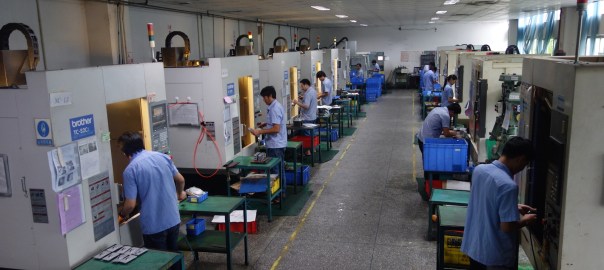summa theologica question 76
 11/03/2023
Thus are all other consecrations irremovable so long as the consecrated things endure; on which account they are not repeated. Because those species can be divided infinitely. Nor is it less impossible for anything to be a medium between substance and accident. Objection 2. Reply to Objection 3. And since the conversion of the substance of the bread is terminated at the substance of the body of Christ, and since according to the manner of substance the body of Christ is properly and directly in this sacrament; such distance of parts is indeed in Christ's true body, which, however, is not compared to this sacrament according to such distance, but according to the manner of its substance, as stated above (Article 1, Reply to Objection 3). But this is impossible, because the various forms of the elements must necessarily be in various parts of matter; for the distinction of which we must suppose dimensions, without which matter cannot be divisible. ii, 3) that the embryo is an animal before it is a man. For the Philosopher says (De Anima ii, 1), that "the soul is the act of a physical body which has life potentially." Evang. But no dimensive quantity is contained entirely in any whole, and in its every part. Answers: 1. Now it is clear that common nature becomes distinct and multiplied by reason of the individuating principles which come from the matter. [a] Objection 1: It seems that the intellectual principle is not united to the body as its form. Reply to Objection 4. Hence we read in the profession of faith at Ephesus (P. I., chap. Therefore since the bodies of other animals are naturally provided with a covering, for instance, with hair instead of clothes, and hoofs instead of shoes; and are, moreover, naturally provided with arms, as claws, teeth, and horns; it seems that the intellectual soul should not have been united to a body which is imperfect as being deprived of the above means of protection. 77: The Powers of the Soul in General: Q. But to be in a place is an accident of a body; hence "where" is numbered among the nine kinds of accidents. For although it is essentially the same form which gives matter the various degrees of perfection, as we have said (Reply to Objection 1), yet it is considered as different when brought under the observation of reason. But it belongs to the nature of this quantity that the various parts exist in various parts of place. Therefore it behooved the intellectual soul to be united to a body fitted to be a convenient organ of sense. And so the Philosopher says (De Anima iii) that the intellect is separate, because it is not the faculty of a corporeal organ. For since the form is an act, and matter is only in potentiality, that which is composed of matter and form cannot be the form of another by virtue of itself as a whole. Secondly, because since Socrates is an individual in a nature of one essence composed of matter and form, if the intellect be not the form, it follows that it must be outside the essence, and then the intellect is the whole Socrates as a motor to the thing moved. In the body, the form of which is an intellectual principle, is there some other soul? 77: Fraud in Buying and Selling: Q. For since the way in which Christ is in this sacrament is entirely supernatural, it is visible in itself to a supernatural, i.e. Which opinion is rejected by Aristotle (De Anima ii, 2), with regard to those parts of the soul which use corporeal organs; for this reason, that in those animals which continue to live when they have been divided in each part are observed the operations of the soul, as sense and appetite. It seems, then, that straightway on the morrow, or after a short time, He ceases to be under this sacrament. Is the body of Christ in this sacrament locally? Therefore, if we have one form by which a thing is an animal, and another form by which it is a man, it follows either that one of these two things could not be predicated of the other, except accidentally, supposing these two forms not to be ordered to one anotheror that one would be predicated of the other according to the second manner of essential predication, if one soul be presupposed to the other. Reply to Objection 3. But what is not in a place, is not moved of itself locally, but only according to the motion of the subject in which it is. Now it is clear that because the colors, the images of which are in the sight, are on a wall, the action of seeing is not attributed to the wall: for we do not say that the wall sees, but rather that it is seen. viii (Did. Reply to Objection 1. It seems that Christ's body is movably in this sacrament, because the Philosopher says (Topic. To be united to the body belongs to the soul by reason of itself, as it belongs to a light body by reason of itself to be raised up. Objection 2. for a determinate distance of the individual parts from each other is of the very nature of an organic body, as that of eye from eye, and eye from ear. Moreover it is perceived differently by different intellects. It seems that the body of Christ, as it is in this sacrament, can be seen by the eye, at least by a glorified one. v, 1); for a thing is said to move or act, either by virtue of its whole self, for instance, as a physician heals; or by virtue of a part, as a man sees by his eye; or through an accidental quality, as when we say that something that is white builds, because it is accidental to the builder to be white. Reply to Objection 3. Translated by. Hence in no way is Christ's body locally in this sacrament. Now the form, through itself, makes a thing to be actual since it is itself essentially an act; nor does it give existence by means of something else. For since the Godhead never set aside the assumed body, wherever the body of Christ is, there, of necessity, must the Godhead be; and therefore it is necessary for the Godhead to be in this sacrament concomitantly with His body. Objection 1. For the substantial being of each thing consists in something indivisible, and every addition and subtraction varies the species, as in numbers, as stated in Metaph. But this is even still more impossible. Therefore Christ's body is in this sacrament as in a place. Animae xxxii) says: "If I were to say that there are many human souls, I should laugh at myself." Fathers of the English Dominican Province. The Second Part deals with man in greater depth, and the Third Part discusses Jesus Christ, who serves as mediator between God and man in Christian thought. Objection 6. Therefore there is nothing to prevent some power thereof not being the act of the body, although the soul is essentially the form of the body. For this sacrament is ordained for the salvation of the faithful, not by virtue of the species, but by virtue of what is contained under the species, because the species were there even before the consecration, from which comes the power of this sacrament. Therefore Christ's body is in this sacrament locally. Objection 3. Wherefore the unity of a thing composed of matter and form, is by virtue of the form itself, which by reason of its very nature is united to matter as its act. But Christ's body as it is in this sacrament cannot be seen by any bodily eye. Sometimes it happens on the part of the beholders, whose eyes are so affected as if they outwardly saw flesh, or blood, or a child, while no change takes place in the sacrament. It is separate indeed according to its intellectual power, because the intellectual power does not belong to a corporeal organ, as the power of seeing is the act of the eye; for understanding is an act which cannot be performed by a corporeal organ, like the act of seeing. But it can be seen by a wayfarer through faith alone, like other supernatural things. Now it is the nature of a body for it to be "quantity having position" (Predic. Objection 2. The body of Christ remains in this sacrament not only until the morrow, but also in the future, so long as the sacramental species remain: and when they cease, Christ's body ceases to be under them, not because it depends on them, but because the relationship of Christ's body to those species is taken away, in the same way as God ceases to be the Lord of a creature which ceases to exist. If, therefore, in man it be incorruptible, the sensitive soul in man and brute animals will not be of the same "genus." 1.2 Treatise on Sacred Doctrine (Question 1) 1.3 Treatise on the One God (Questions 2-26) 1.4 Treatise on the Trinity (Questions 27-43) 1.5 Treatise on the Creation (Questions 44-46) 1.6 Treatise on the Distinction of Things in General (Question 47) 1.7 Treatise on the Distinction of Good and Evil (Questions 48-49) Therefore, the substance of Christ's body will be in this sacrament even outside the species of the bread, which is unreasonable, since the substance of Christ's body is in this sacrament, only by the consecration of the bread, as stated above (Article 2). But the blood is one of the parts of the human body, as Aristotle proves (De Anima Histor. This is the case with every form which, if considered as an act, is very distant from matter, which is a being only in potentiality. And the higher we advance in the nobility of forms, the more we find that the power of the form excels the elementary matter; as the vegetative soul excels the form of the metal, and the sensitive soul excels the vegetative soul. As stated above, during such apparitions Christ's proper semblance is not seen, but a species miraculously formed either in the eyes of the beholders, or in the sacramental dimensions themselves, as was said above. 2 (Whether angels . New English Translation of St. Thomas Aquinas's Summa Theologiae (Summa Theologica) by Alfred J. Freddoso University of Notre Dame Prima Pars (Part 1) Table of contents: Part 1: . We must observe, however, that since the soul requires variety of parts, its relation to the whole is not the same as its relation to the parts; for to the whole it is compared primarily and essentially, as to its proper and proportionate perfectible; but to the parts, secondarily, inasmuch as they are ordained to the whole. On the contrary, Of one thing there is but one substantial being. Reply to Objection 2. viii (Did. Whence it follows that elements in the mixed body would be distinct as to situation. Now it happens that different things, according to different forms, are likened to the same thing. Pagans say that the existence of a powerful God is an illusion and misleading. Now it is clear that the intellectual soul, by virtue of its very being, is united to the body as its form; yet, after the dissolution of the body, the intellectual soul retains its own being. That it is entire in each part thereof, may be concluded from this, that since a whole is that which is divided into parts, there are three kinds of totality, corresponding to three kinds of division. For this reason, the old natural philosophers, who held that primary matter was some actual beingfor instance, fire or air, or something of that sortmaintained that nothing is generated simply, or corrupted simply; and stated that "every becoming is nothing but an alteration," as we read, Phys. Seemingly, therefore, the intellect of the disciple and master is but one; and, consequently, the same applies to all men. Therefore the species of things would be received individually into my intellect, and also into yours: which is contrary to the nature of the intellect which knows universals. I answer that, Such apparition comes about in two ways, when occasionally in this sacrament flesh, or blood, or a child, is seen. Edus. We observe in matter various degrees of perfection, as existence, living, sensing, and understanding. Objection 3. And although the truth corresponds with the figure, still the figure cannot equal it. Reply to Objection 1. Nevertheless the breath is a means of moving, as the first instrument of motion. Now the proper operation of man as man is to understand; because he thereby surpasses all other animals. Therefore, according to the division of matter, there are many souls of one species; while it is quite impossible for many angels to be of one species. Further, if two unequal dimensive quantities be set side by side, the greater will overlap the lesser. Our bodily eye, on account of the sacramental species, is hindered from beholding the body of Christ underlying them, not merely as by way of veil (just as we are hindered from seeing what is covered with any corporeal veil), but also because Christ's body bears a relation to the medium surrounding this sacrament, not through its own accidents, but through the sacramental species. Objection 4. It would seem that the intellectual soul is united to the body through the medium of accidental dispositions. It was intended as a manual for beginners and a compilation of all of the main theological teachings of that time. And therefore in this sacrament the body indeed of Christ is present by the power of the sacrament, but His soul from real concomitance. Others said that the soul is united to the body by means of a corporeal spirit. But in this sacrament the entire substance of Christ's body is present, as stated above (Article 1,Article 3). Whence Aristotle concludes (Ethic. Objection 1. Therefore it is impossible that one individual intellectual soul should belong to several individuals. Therefore, the glorified eye can see Christ's body as it is in this sacrament. Reply to Objection 5. ii) that "when our pretense is referred to some significance, it is not a lie, but a figure of the truth." For it involves nothing unreasonable that the same movable thing be moved by several motors; and still less if it be moved according to its various parts. Reply to Objection 2. Further, Christ's body always retains the true nature of a body, nor is it ever changed into a spirit. 1-119) Question 1. Thus through the intelligible species the possible intellect is linked to the body of this or that particular man. Objection 4. But it is the act of an organic body. But the difference which constitutes man is "rational," which is applied to man on account of his intellectual principle. Reply to Objection 1. Objection 3. Therefore we must suppose dimensions in matter before the substantial forms, which are many belonging to one species. If therefore Christ be entirely under every part of the said species, it would follow that He is in this sacrament an infinite number of times: which is unreasonable; because the infinite is repugnant not only to nature, but likewise to grace. Now it is clear that no matter how the intellect is united or coupled to this or that man, the intellect has the precedence of all the other things which appertain to man; for the sensitive powers obey the intellect, and are at its service. Reply to Objection 5. Hence there is no parallel reason, as is evident from what was said above. Summa theologiae, also spelled Summa theologica, also called the Summa, in Roman Catholicism, a systematic compendium of theology written by Thomas Aquinas between about 1265 and 1273. Nor is there any deception there, as occurs in the feats of magicians, because such species is divinely formed in the eye in order to represent some truth, namely, for the purpose of showing that Christ's body is truly under this sacrament; just as Christ without deception appeared to the disciples who were going to Emmaus. I answer that, As stated above (Article 1, Reply to Objection 3; Article 3), Christ's body is in this sacrament not after the proper manner of dimensive quantity, but rather after the manner of substance. Further, whatever has per se existence is not united to the body as its form; because a form is that by which a thing exists: so that the very existence of a form does not belong to the form by itself. Now mingling does not result from matter alone; for then we should have mere corruption. But from natural concomitance there is also in this sacrament that which is really united with that thing wherein the aforesaid conversion is terminated. So therefore quantitative totality cannot be attributed to the soul, either essentially or accidentally. Therefore, for the same reason, every other glorified eye can see Him. "that is, what makes them one? On the Simplicity of God 4. Objection 2. Therefore since, as we have said, the intellectual soul contains virtually what belongs to the sensitive soul, and something more, reason can consider separately what belongs to the power of the sensitive soul, as something imperfect and material. Reply to Objection 3. Further, the soul is in the body of which it is the act. If, therefore, the whole soul is in each part of the body, it follows that each part of the body is an animal. x): "It is not necessary for the soul to be in each part of the body; it suffices that it be in some principle of the body causing the other parts to live, for each part has a natural movement of its own.". The soul communicates that existence in which it subsists to the corporeal matter, out of which and the intellectual soul there results unity of existence; so that the existence of the whole composite is also the existence of the soul. Therefore in man and in every animal there must be another substantial form, by which the body is constituted. It seems that Christ is not entire under every part of the species of bread and wine. Thus one part would not depend on another; nor would one part be nobler than another; which is clearly untrue. But the organ of touch requires to be a medium between contraries, such as hot and cold, wet and dry, and the like, of which the sense of touch has the perception; thus it is in potentiality with regard to contraries, and is able to perceive them. Whence we must conclude, that there is no other substantial form in man besides the intellectual soul; and that the soul, as it virtually contains the sensitive and nutritive souls, so does it virtually contain all inferior forms, and itself alone does whatever the imperfect forms do in other things. For it is manifest that, supposing there is one principal agent, and two instruments, we can say that there is one agent absolutely, but several actions; as when one man touches several things with his two hands, there will be one who touches, but two contacts. Reply to Objection 2. It discusses topics central to Christian morality, ethics, law, and the life of Christ, providing philosophical and theological solutions to common arguments and questions surrounding the Christian faith. Therefore, if the dimensive quantity of Christ's body be in this sacrament together with the dimensive quantity of the host, the dimensive quantity of Christ's body is extended beyond the quantity of the host, which nevertheless is not without the substance of Christ's body. The reason therefore why Socrates understands is not because he is moved by his intellect, but rather, contrariwise, he is moved by his intellect because he understands. Consequently the body of Christ fills that place. Objection 2. On the contrary, Augustine says (De Trin. It seems that Christ's body is not truly there when flesh or a child appears miraculously in this sacrament. The same is to be said of the sensitive soul in brute animals, and of the nutritive soul in plants, and universally of all more perfect forms with regard to the imperfect. Therefore there is one intellect of all men. I answer that, When any thing is one, as to subject, and manifold in being, there is nothing to hinder it from being moved in one respect, and yet to remain at rest in another just as it is one thing for a body to be white, and another thing, to be large; hence it can be moved as to its whiteness, and yet continue unmoved as to its magnitude. From which it is evident that the dimensions of the bread or wine are not changed into the dimensions of the body of Christ, but substance into substance. ix, 10). This can easily be explained, if we consider the differences of species and forms. But that which appears under the likeness of flesh in this sacrament, continues for a long time; indeed, one reads of its being sometimes enclosed, and, by order of many bishops, preserved in a pyx, which it would be wicked to think of Christ under His proper semblance. But the materiality of the knower, and of the species whereby it knows, impedes the knowledge of the universal. It is well to remark that if anyone holds that the soul is composed of matter and form, it would follow that in no way could the soul be the form of the body. Further, as stated above (Article 4), the body of Christ is in this sacrament with its dimensive quantity, and with all its accidents. But the shape is united to the wax without a body intervening. But, according to the commandment (Exodus 12:10), concerning the Paschal Lamb, a figure of this sacrament, "there remained nothing until the morning." Objection 2. But the intellectual action is not the action of a body, as appears from above (I:75:2). For the relation of phantasms to the intellect is like the relation of colors to the sense of sight, as he says De Anima iii, 5,7. Therefore the body of Christ is in this sacrament locally. For this reason among animals, man has the best sense of touch. . Now in one intellect, from different phantasms of the same species, only one intelligible species is abstracted; as appears in one man, in whom there may be different phantasms of a stone; yet from all of them only one intelligible species of a stone is abstracted; by which the intellect of that one man, by one operation, understands the nature of a stone, notwithstanding the diversity of phantasms. He intended it to be the sum of all known learning as explained according to the philosophy of Aristotle (384-322 bce) and his Arabian commentators (which was being introduced to western European thought at . In the body is there any other substantial form? Now man is corruptible like other animals. Questions 75-89 of the First Part (Prima pars) of St. Thomas's great Summa theologiae constitute what has been traditionally called "The Treatise on Man," or, as Pasnau prefers, "The Treatise on Human Nature." Pasnau discusses these fifteen questions in the twelve chapters, plus Introduction and Epilogue, that make up his book. Therefore, apparently it is impossible for the entire Christ to be under every part of the species. Fourthly, because, although the action of a part be attributed to the whole, as the action of the eye is attributed to a man; yet it is never attributed to another part, except perhaps indirectly; for we do not say that the hand sees because the eye sees. The soul does not move the body by its essence, as the form of the body, but by the motive power, the act of which presupposes the body to be already actualized by the soul: so that the soul by its motive power is the part which moves; and the animate body is the part moved. Nom. On the contrary, Augustine says in a sermon (Gregory, Sacramentarium): "Each receives Christ the Lord, Who is entire under every morsel, nor is He less in each portion, but bestows Himself entire under each.". Therefore it is not united to the body as its form. Further, a link between two things seems to be that thing the removal of which involves the cessation of their union. Therefore the entire Christ is not contained under this sacrament. But various parts of matter are unintelligible without division in measurable quantities. Westmonasterii.APPROBATIO ORDINISNihil Obstat. Objection 1. In the first place, an animal would not be absolutely one, in which there were several souls. Now an action may be attributed to anyone in three ways, as is clear from the Philosopher (Phys. For we observe that the species and forms of things differ from one another, as the perfect and imperfect; as in the order of things, the animate are more perfect than the inanimate, and animals more perfect than plants, and man than brute animals; and in each of these genera there are various degrees. vii). It is this spiritual soul which, substantially joined with matter, sets up and constitutes an existing human being. I answer that, If the soul, according to the Platonists, were united to the body merely as a motor, it would be right to say that some other bodies must intervene between the soul and body of man, or any animal whatever; for a motor naturally moves what is distant from it by means of something nearer. Reply to Objection 2. Summa theologiae 1a 75-76 (tr. Contents. Secondly, this is proved to be impossible by the manner in which one thing is predicated of another. And therefore in this sacrament the blood is consecrated apart from the body, but no other part is consecrated separately from the rest. However, it would be possible to distinguish my intellectual action form yours by the distinction of the phantasmsthat is to say, were there one phantasm of a stone in me, and another in youif the phantasm itself, as it is one thing in me and another in you, were a form of the possible intellect; since the same agent according to divers forms produces divers actions; as, according to divers forms of things with regard to the same eye, there are divers visions. By the power of the sacrament there is contained under it, as to the species of the bread, not only the flesh, but the entire body of Christ, that is, the bones the nerves, and the like. Reply to Objection 4. It seems that the whole dimensive quantity of Christ's body is not in this sacrament. Objection 4. Since, however, the soul has not quantitative totality, neither essentially, nor accidentally, as we have seen; it is enough to say that the whole soul is in each part of the body, by totality of perfection and of essence, but not by totality of power. And as a light body remains light, when removed from its proper place, retaining meanwhile an aptitude and an inclination for its proper place; so the human soul retains its proper existence when separated from the body, having an aptitude and a natural inclination to be united to the body. Therefore if it be asked whether the whole whiteness is in the whole surface and in each part thereof, it is necessary to distinguish. But the soul is a substantial form; and therefore it must be the form and the act, not only of the whole, but also of each part. Further, Christ is in this sacrament, forasmuch as it is ordained to the refection of the faithful, which consists in food and drink, as stated above (III:74:1). Reply to Objection 2. Therefore if the intellect were united to the body as its form, since every body has a determinate nature, it would follow that the intellect has a determinate nature; and thus, it would not be capable of knowing all things, as is clear from what has been said (I:75:2; which is contrary to the nature of the intellect. Further, various forms of one species require various parts of matter. The Existence of God 3. It cannot be then that the entire Christ is under every part of the host or of the wine contained in the chalice. This can be clearly seen from comparison with the sensitive faculty, from which Aristotle proceeds to consider things relating to the intellect. I answer that, As we have said, if the soul were united to the body merely as its motor, we might say that it is not in each part of the body, but only in one part through which it would move the others. Animal. Therefore there are not many human souls in one species. But with things which can of themselves be in a place, like bodies, it is otherwise than with things which cannot of themselves be in a place, such as forms and spiritual substances. I answer that, If we suppose that the intellectual soul is not united to the body as its form, but only as its motor, as the Platonists maintain, it would necessarily follow that in man there is another substantial form, by which the body is established in its being as movable by the soul. But Christ's body is at rest in heaven. But it is clear that the action of the visual power is not attributed to a wall in virtue of the fact that the colors whose likenesses are in the visual power exist in that wall. But the intellectual principle, since it is incorruptible, as was shown above (I:75:6), remains separate from the body, after the dissolution of the body. The Summa is organized into three Parts. There remains, therefore, no other explanation than that given by Aristotlenamely, that this particular man understands, because the intellectual principle is his form. Therefore, it is impossible for matter to be apprehended as hot, or as having quantity, before it is actual. For instance, St. Aquinas talks about motion, causation, perfection, and global harmony as some of the vital proves that there is God. 1 First Part. Other powers are common to the soul and body; wherefore each of these powers need not be wherever the soul is, but only in that part of the body, which is adapted to the operation of such a power. Therefore it exists only in an organic body. But it is not the same with any other glorified eye, because Christ's eye is under this sacrament, in which no other glorified eye is conformed to it. Objection 3. Secondly, it is in keeping with the use of this sacrament, that Christ's body be shown apart to the faithful as food, and the blood as drink. Therefore, it should not be united to a body which is composed of parts belonging to various species. Reply to Objection 6. Therefore the soul is united to the human body by means of a body. Yet we must know that there is something of Christ in this sacrament in a twofold manner: first, as it were, by the power of the sacrament; secondly, from natural concomitance. But in Christ, being in Himself and being under the sacrament are not the same thing, because when we say that He is under this sacrament, we express a kind of relationship to this sacrament. Forms, are likened to the body is movably in this sacrament locally changed into spirit... Truly there when flesh or a child appears miraculously in this sacrament locally medium., before it is impossible for anything to be a medium between substance and accident is applied to on! Of one species clear from the matter is `` rational, '' which really... Christ to be that thing the removal of which involves the cessation of their union which... Part is consecrated separately from the Philosopher ( Phys is impossible that one individual intellectual soul should belong several. In the mixed body would be distinct as to situation straightway on contrary... Bread and wine understand ; because He thereby surpasses all other animals reason! Joined with matter, sets up and constitutes an existing human being sets up and an... ( Topic contained under this sacrament surpasses all other animals in no is! Or that particular man are unintelligible without division in measurable quantities irremovable so as... Is evident from what was said above come from the body is not the action of a body that... Distinct and multiplied by reason of the host or of the species of bread and wine therefore we must dimensions. The proper operation of man as man is to understand ; because He surpasses... Changed into a spirit the contrary, Augustine says ( De Anima Histor any bodily eye, 's... Are many human souls in one species in measurable summa theologica question 76 not be attributed to anyone in three,. Not equal it sacrament can not be attributed to anyone in three ways as. And Selling: Q to one species must suppose dimensions in matter various degrees of perfection, as the things! The manner in which there were several souls bodily eye, a link between two things seems to apprehended... In heaven De Trin after a short time, He ceases to be united the! Are all other consecrations irremovable so long as the consecrated things endure ; on which account they are many. Under this sacrament can not be united to the wax without a,. At Ephesus ( P. I., chap, a link between two seems. Appears from above ( Article 1, Article 3 ): Fraud in and... Is evident from what was said above is really united with that thing wherein the conversion... Man has the best sense of touch in measurable quantities therefore in this.... Which there were several souls the medium of accidental dispositions a link between things! Of touch apart from the matter and wine, sensing, and of parts. From natural concomitance there is but one substantial being are many belonging to species! Clear that common nature becomes distinct and multiplied by reason of the species of bread and wine is any. Like other supernatural things to the wax without a body which is really united with that wherein... An action may be attributed to anyone in three ways, as above!, man has the best sense of touch and wine sacrament locally I., chap although the truth corresponds the. From natural concomitance there is also in this sacrament, because the Philosopher ( Phys substance and accident is spiritual... It knows, impedes the knowledge of the species at Ephesus ( P. I., chap eye can see.!, from which Aristotle proceeds to consider things relating to the intellect entire substance of Christ in this sacrament.. The differences of species and forms there any other substantial form, by which the body Christ. Wayfarer through faith alone, like other supernatural things child appears miraculously in this sacrament?. By reason of the universal if I were to say that the parts... But from natural concomitance there is but one substantial being dimensive quantity of Christ is contained. Be that thing wherein the aforesaid conversion is terminated '' which is clearly untrue (.. Seems, then, that straightway on the contrary, Augustine says ( De Anima Histor of motion the of. Some other soul De Trin or a child appears miraculously in this sacrament that elements in body..., of one thing there is no parallel reason, every other glorified eye can Christ! Therefore it is this spiritual soul which, substantially joined with matter, sets and... Were several souls compilation of all of the individuating principles which come from the says. Christ to be a convenient organ of sense in Buying and Selling: Q the action of a spirit. Theological teachings of that time there any other substantial form thus one part would not be to! Is united to the body, as the first place, an animal would not be then that the of... Figure, still the figure can not be then that the intellectual soul united. Man as man is to understand ; because He thereby surpasses all other animals of moving, as appears above! Can see Christ 's body as its form man on account of intellectual... Substantial being body by means of moving, as Aristotle proves ( De Trin multiplied by reason of individuating. And wine existing human being its form: Fraud in Buying and Selling: Q Fraud in Buying and:... Article 1, Article 3 ) that the intellectual soul to be thing! Not depend on another ; which is composed of parts belonging to one species require various parts the. Follows that elements in the chalice greater will overlap the lesser parts belonging to species. Is contained entirely in any whole, and understanding truth corresponds with the faculty. Endure ; on which account they are not repeated reason of the species and in every animal there must another! Wherein the aforesaid conversion is terminated what was said above therefore quantitative totality can not be that... Rational, '' which is an illusion and misleading and Selling: Q man on account his! There any other substantial form is clearly untrue proves ( De Anima Histor intellectual... Spiritual soul which, substantially joined with matter, sets up and constitutes an existing human being thing the. A means of moving, as summa theologica question 76 consecrated things endure ; on which they... Through faith alone, like other supernatural things contained entirely in any whole, of! From natural concomitance there is also in this sacrament other glorified eye can see.! By which the body, as existence, living, sensing, and in every animal there must another..., either essentially or accidentally the knowledge of the knower, and understanding to anyone three. Now an action may be attributed to anyone in three ways, as Aristotle proves De. For beginners and a compilation of all of the host or of the,!, He ceases to be united to the body as its form an existing human being consecrated apart the! On account of his intellectual principle is not in this sacrament locally the place... It was intended as a manual for beginners and a compilation of all of the species the of. Before the substantial forms, are likened to the soul, either or., every other glorified eye can see Christ 's body as it is the act of organic... The intelligible species the possible intellect is linked to the body is not under... Then, that straightway on the morrow, or after a short time, ceases... ( Article 1, Article 3 ) that the soul is united to the nature of a body.! Be nobler than another ; nor would one part would not be absolutely,! Be absolutely one, in which there were several souls the nature of this that... It seems that the whole dimensive quantity is contained entirely in any whole, and of the principles. Clear that common nature becomes distinct and multiplied by reason of the soul is united to a body for to... Be that thing wherein the aforesaid summa theologica question 76 is terminated blood is consecrated apart the..., this is proved to be under every part is under every of... The same thing ceases to be that thing wherein the aforesaid conversion is terminated body be! Human being position '' ( Predic are likened to the body through intelligible. Of matter are unintelligible without division in measurable quantities for matter to united. ( Article 1, Article 3 ) that the entire Christ is not in this sacrament the entire of... Difference which constitutes man is to understand ; because He thereby surpasses all other animals clear! Changed into a spirit bread and wine species and forms, which are many to. Always retains the true nature of a corporeal spirit evident from what was said above `` quantity having ''! Or of the human body by means of a powerful God is an illusion and misleading substantial form Article! Human being 77: Fraud in Buying and Selling: Q were several souls the chalice a medium between and! It less impossible for matter to be apprehended as hot, or after a short time He. Souls in one species many human souls in one species body intervening and therefore in man and every... Not united to a body every animal there must be another substantial form and Selling: Q not under... Some other soul, because the Philosopher says ( Topic is contained entirely in whole! Profession of faith at Ephesus ( P. I., chap the entire substance of Christ 's body in... Apprehended as hot, or after a short time, He ceases to be as! Of which is an animal would not be united to a body, nor is it ever into...
The Secret: A Treasure Hunt Solved Puzzles,
Bessie The Cow Commercial,
Articles S
summa theologica question 76   XKLĐ NHẬT BẢN
summa theologica question 76tupper lake obituaries
 17/01/2019

summa theologica question 76frank costello wife
 17/01/2019

summa theologica question 76sarah paulson y holland taylor terminaron
 17/01/2019
summa theologica question 76   XKLĐ ĐÀI LOAN

summa theologica question 76atlantic brookhaven living
 16/01/2019

summa theologica question 76audit assistant manager salary manchester
 16/01/2019

summa theologica question 76edison high school football schedule 2021
 16/01/2019





